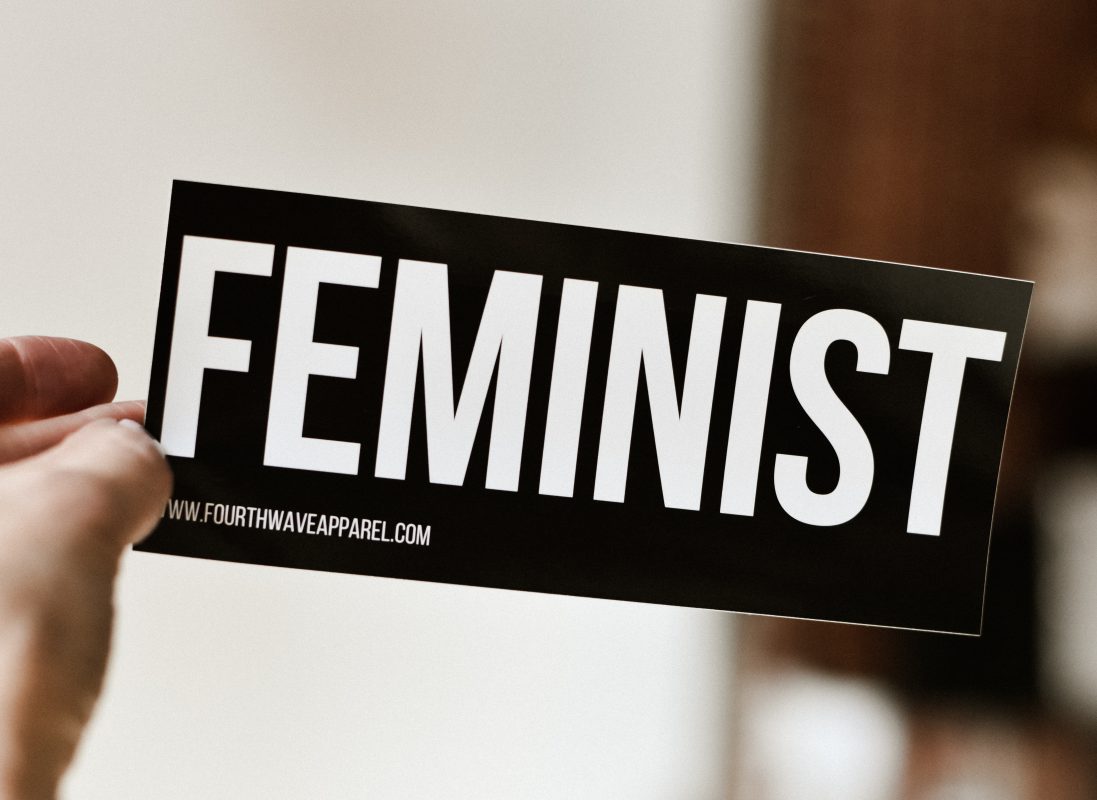Feminism
How Feminism Has Constrained Our Understanding of Gender
Feminist research into sex differences has typically concluded that the number of sex differences is small, and therefore unimportant, thus making the logical error that a small number of differences means those differences are inconsequential.

This week Melinda Gates said that she is committing $1 billion to promote gender equality by doing things like dismantling “harmful gender norms.” To many people, this sounds like a wonderful idea, but in reality, how effective are gender equality strategies that blame inequality solely on social factors such as gender norms and stereotypes?
Professor Alice Eagly, in her paper “The Shaping of Science by Ideology: How Feminism Inspired, Led, and Constrained Scientific Understanding of Sex and Gender,”1 explores the ways in which feminism helped to create the now widely held misconception that gender is simply a product of social influence.
This feminist misconception is not simply a dry academic fossil from the nature-nurture debate—it’s a flawed notion that has become central to how we treat men and women in all areas of life. This one-sided view of gender has caused problems in a range of areas, including therapy, the workplace, sports, and the law. Much of Eagly’s expertise relates to workplace psychology, so this is the area on which she focuses.

The central problem highlighted by Eagly, who is herself a feminist, is that ignoring the biological influence on gender has “allowed mainstream feminist psychology to produce a description of the phenomena of women’s disadvantage as rooted in the external environment—in the patriarchal structures of families, task groups, organizations, and nations. In this understanding, the individual psychological attributes of women have little, if anything, to do with disadvantage.” (Eagly 2018, p.877)
Eagly says that the feminist view of gender relations has become such a dominant narrative that when psychologists have tried to promote women’s careers by encouraging them to be more confident, it has been met with hostility from feminists. Sheryl Sandberg’s concept of “leaning in” (women taking the initiative by confidently speaking up at meetings and volunteering for challenging assignments) was extremely popular with the public.2 However, it was derided by feminists like Christine Williams3 because the “lean in” concept made women responsible for climbing the career ladder by their own individual efforts, rather than presuming women’s efforts were relentlessly impeded by societal-level problems, such as gender stereotypes.
Feminist research into sex differences has typically concluded that the number of sex differences is small, and therefore unimportant, thus making the logical error that a small number of differences means those differences are inconsequential. This error is exposed if we think of the small number of genetic differences between mice and humans (five percent) compared to the similarities (95 percent). Feminist research routinely overlooks or discounts examples of cognitions and behaviours that show sex differences. The large number of such differences, their mapping onto gender typicality, and their appearance around the world, are all facts that call into question the idea that gender differences are negligible, and suggest that such differences cannot be explained by socialisation alone.
“We Still Have a Long Way to Go”?
“Feminists fail to recognize the positive trends,” says Eagly, which keeps them in a perpetual state of dissatisfaction despite major advances. She lists examples of such advances in the US workplace, including the following trends in STEM (science, technology, engineering, and mathematics):
- in academic science, women have a better chance than men of being interviewed and receiving offers;
- experimental simulations of academic hiring in STEM found a strong favoring of women over equally qualified men;
- the careers of female and male psychology professors progress at similar rates after securing a tenure-track position;
- female business management job candidates have recently begun to enjoy a wage premium over men because of their diversity value.
These and other trends highlighted by Eagly, including #MeToo, call into question how realistic it is to see women today as an oppressed class. It strikes me as likely that a cognitive distortion called gamma bias skews the way many people see gender issues, causing not only a selective blindness to women’s gains, but a hyper-focus on instances in which men seem to have an advantage. Ironically, this phenomenon has yet to reach the consciousness of experts on unconscious bias.
Women’s progress in the workplaces is impressive, especially given the notorious “leaky pipeline” in STEM career progression. Career dropout has been a stubborn problem to those in the gender equality industry, and has been impervious to gender quotas and measures such as Athena SWAN. Although it continually perplexes people in the gender equality industry, many observers recognise that the leaky pipeline is caused by a mixture of career preferences and lifestyle choices, not least, the very understandable decision made by many women to put their career on hold in order to raise children.
Eagly points out that it is becoming clear to more and more people that it is disempowering to promote the idea of gender being merely a product of the environment. Traditional feminism was accused last year in the Chicago Tribune of being obsessed with a “dreadfully tired script,” and that “constantly telling people they are victims isn’t so empowering after all.”4 Any script that describes an eternal struggle for power between two classes, men and women, has parallels with Marxist ideology, but Eagly wonders if the focus of feminist studies on social factors and patriarchy reflects the “politically liberal ideology [focused on human, social and civil rights] shared by the majority of investigators,” as compared to the emphasis on the spirit of individual effort and entrepreneurship emphasised people like Sheryl Sandberg (Eagly 2018, p.877). It is easy to see how individualism might allow women to enjoy a greater sense of having control over their destiny, and allow women to take more ownership of their achievements.
Eagly suggests that although ideology can inspire research, the shared political ideology of scientists can also become a straitjacket: “ideology is the most difficult of biases to erase because its advocates seldom recognize or acknowledge it. Still, as social scientists, we are responsible for improving our science.” (Eagly 2018, p.882)
How Can this Problem Be Overcome?
Eagly draws upon the work of one of the greats of social psychology, Kurt Lewin, for a solution. Lewin suggested that every psychological event depends both upon the person’s inner state and at the same time the environment, with variation on the relative importance of each in different situations.5 In Eagly’s view, researchers should simultaneously consider social regulation and self-regulation to recognise that although the external environment may exert an influence on behaviour, “individuals usually have some personal choice, at least outside of totalitarian societies.” (Eagly 2018, p.880) In addition, Eagly urges researchers to consider the possibility that early-appearing behavioural sex differences (e.g. toy preference, which can be seen from 9 months postnatally)6 may be result of the complex interaction between nature and nurture, including epigenetics, and to look beyond feminist critiques of biological science, such as those by Cordelia Fine.
If social policy suffers, then society suffers, and that’s why Eagly’s paper is so significant. A world that has been told—falsely—for decades that gender is merely a social construct, is a world in which a well-intentioned multi-billionaire can throw a huge amount of money at gender equality, despite admitting that this is “only a small fraction of what’s necessary.” But what if the reality is not so much a leaky pipeline as an unstoppable tidal wave of women’s choices? What if money can’t make mother nature go away?
As professionals, we all need to take responsibility for making sure that psychology provides a solid scientific evidence base from which to promote wellbeing and growth, not an ideology of half-truths taking us on a perpetual road to an unreachable Utopia.
References:
1 Eagly, A. H. (2018). The shaping of science by ideology: How feminism inspired, led, and constrained scientific understanding of sex and gender. Journal of Social Issues, 74(4), 871-888. https://spssi.onlinelibrary.wiley.com/doi/abs/10.1111/josi.12291 First published Nov 4th 2018.
2 Sandberg, S. (2013). Lean in: Women, work, and the will to lead. New York, NY: Random House.
3 Williams, C. (2014). The happy marriage of capitalism and feminism. Contemporary Sociology: A Journal of Reviews, 43, 58–61. https://doi.org/10.1177%2F0094306113514538c
4 Wilhelm, H. (2018). Commentary: It’s true: These days conservatives can’t be “feminists.” Chicago Tribune. Retrieved from http://www.chicagotribune.com/news/opinion/commentary/ct-perspec-wilhelm-conservatives-feminists-jessica-valenti-heather-wilhelm-feminism-0527-story.html
5 Lewin, K. (1936). Principles of topological psychology. New York, NY: McGraw-Hill. https://doi.org/10.1037/10019-000
6 Todd, B. K., Fischer, R. A., Di Costa, S., Roestorf, A., Harbour, K., Hardiman, P., & Barry, J. A. (2018). Sex differences in children’s toy preferences: A systematic review, meta‐regression, and meta‐analysis. Infant and Child Development, 27(2), e2064. https://onlinelibrary.wiley.com/doi/abs/10.1002/icd.2064






